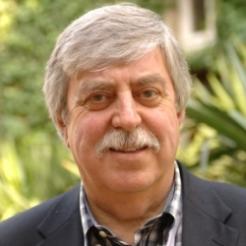Malcolm Hayday has announced his intention to step down from Charity Bank, the social finance institution that he helped to set up ten years ago.
A headhunter has been appointed to find his successor, and he will stay on as chief executive until that person is settled in to the job.
He told civilsociety.co.uk this morning that he only ever intended to stay at Charity Bank until the institution had reached a “steady state”, and that the time had now come for someone else to take it further forward.
“Also, I want to do one more challenge before I retire,” he said. “I think I can contribute something more and I am working on a few things now, there are a lot of new ideas around.”
Hayday, who is 62, added that when chairman George Blunden joined the board 18 months ago, he told him that “one of the key things he would have to do would be to find my successor”.
Charity Bank is the world’s first registered charity that is also an authorised bank. It was established by Charities Aid Foundation in 2002, nine years after Hayday joined CAF to explore the potential for a charitable investment market. It takes deposits from members of the public and makes loans to charities.
Under Hayday’s leadership, Charity Bank has grown from assets of £6.4m at launch in 2002 to have a balance sheet at the end of last year of over £80m. The bank has made more than 1,000 loans to civil society organisations and expects to post its first surplus this year, of around £350,000.
Possible barrier to growth
However, recently the bank has encountered a stumbling block to further growth in the form of proposed new European banking regulations that are designed to prevent a repeat of the banking crisis at large commercial banks.
The new regulations contain some demands that are at odds with charity law, putting Charity Bank in a difficult position as it has to comply with both charity law and banking law. As a result, it has applied to the Charity Commission to change its governing documents to allow it to distribute profits to its charitable shareholders and so comply with the new regulations.
The Commission has been considering the request for some weeks. It has pointed out that its decision on the issue will have wider implications for all charitable companies.
Charity Bank has also recently considered and ruled out a merger with CAF Bank. While Charity Bank has assets of around £80m and can make loans, CAF Bank has deposits of over £1bn held in charity accounts but does not have the facility to make loans. However, the difficulties of merging a for-profit bank (CAF Bank) with a not-for-profit bank (Charity Bank) caused the two boards to back off from a full merger but they are still exploring ways that the two banks can work more closely together.









